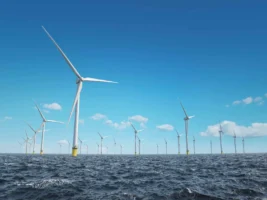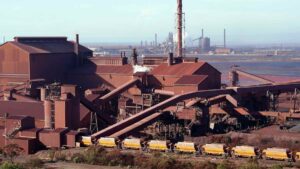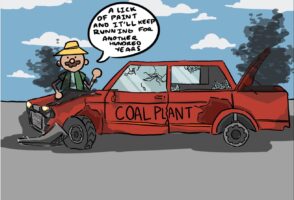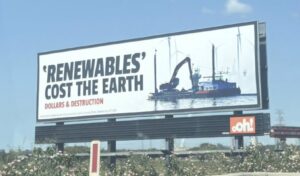The federal Coalition government has spent the better part of the “critical decade” for climate change action doing everything in its power not to act, a new report has found, including deliberately misleading the public on the science, and on Australia’s emissions trajectory.
In what is shaping up as a very bad week for the Coalition’s climate credentials, the Climate Council said the Liberal National Party’s tenure – from prime ministers Abbott to Morrison – had been characterised by slashing funding to climate science, cutting climate programs, rejecting expert advice, making false and misleading claims, and consistently covering up poor performance.
“The government’s lack of climate change action is the defining leadership failure of the past decade,” the report says.
“We have not tackled climate change, the consequences are with us, and we must work very quickly to prevent catastrophic consequences.”
The report, which gives the government an “F” for effort and execution, is particularly scathing about the Coalition’s consistent fudging of national greenhouse gas data – namely, its claim that Australia’s emissions are falling when they have actually risen for four years running.
“Australia is unlikely to meet its 2030 emissions reduction target according to the government’s own department. Regardless, senior ministers continue to falsely claim that emissions are going down and targets will be met,” the report says.
And in the first leaders’ debate of the election campaign, held in Perth on Monday night, Morrison continued undeterred with that very message, claiming the government had met the Kyoto 2020 emission targets and now had a “climate surplus” on track to meeting its Paris goals.
But, as a group of 28 climate scientists, academics and former heads of energy companies went out of their way to remind the government in March, neither of these claims is strictly true.
Australia is not on track to meet its 2030 emissions reduction target, and even if it was, the target itself is woefully inadequate for what science says must be done to avert dangerous climate change.
 On Kyoto, they reminded us, Australia used “dodgy credits” obtained through a trick of accounting – and the Coalition intends to do this again, in order to meet the 2030 Paris target without actually having to reduce emissions.
On Kyoto, they reminded us, Australia used “dodgy credits” obtained through a trick of accounting – and the Coalition intends to do this again, in order to meet the 2030 Paris target without actually having to reduce emissions.
But perhaps the most important message of the Climate Council report is that this kind of climate policy sleight of hand has become second nature to Coalition ministers, even if voters are no longer falling for it.
It was on display during the debate, when Morrison magically turned the focus from his own party’s glaring lack of policy, to the cost of climate action under Labor – not the cost of inaction, mind you, but the cost of action.
“He’s not telling you what the cost of change is,” Morrison said of his adversary Bill Shorten on Monday night. “Voting has started, people deserve to know what the cost of change is.”
But as the Climate Council report notes, voters might be equally interested in a totting-up of the costs – both environmental and economic – of the Coalition’s decade of inaction.
“The federal government has squandered its tenure and that will cost us dearly,” it says. “Australia has missed many opportunities to reduce greenhouse gas emissions and transition our economy in the cheapest, most gradual and effective ways possible.
“We must now address the accelerating consequences of climate change and we are unprepared.”
The Climate Council’s scathing assessment follows Monday’s report card from the Australian Conservation Foundation, which gave the Coalition a score of just 4/100 for its climate policies.
“Australians are already being hurt by climate damage and they want to be represented by politicians who take the issue seriously and will act with urgency,” said ACF CEO Kelly O’Shanassy.
“The Coalition’s signature climate policy – the emissions reduction fund – has not curbed Australia’s climate pollution. For the Coalition to again offer this ineffective policy as its main plan to tackle climate change shows a disregard for farmers, survivors of natural disasters fuelled by global warming and the next generation of Australians.”
But it’s not just climate groups who are growing tired of the LNP’s endless climate obfuscation. Business and industry are sick of it, too, as Australian boards are increasingly held to higher climate standards than its top political leaders.
“The report released today by The Climate Council tells the sorry tale of Australia’s climate inaction, for which the blame is to be shared across the political spectrum,” said the CEO of Meridian Energy Australia and Powershop Australia, Ed McManus, in comments to RE.
“What we need now is action.
McManus argues that the failed Coalition combined climate and energy policy, the National Energy Guarantee, would be a good place to start.
“Whilst not perfect … (it) allows the market to function and it is the closest thing we have to a bi-partisan position that will provide the certainty we so desperately need in energy policy in this country,” he said.
“We implore all sides of government to get behind the NEG – again – and to make it a reality in the 46th Parliament.”
John Connor, who as we reported here is returning to Australia from Fiji to head up the Carbon Markets Institute, says regulators, central banks and business people are now geared to a sense of responsibility and risk management, even if government isn’t.
“There is a sense of frustration and an acknowledgment that something has to happen,” he told RE.
“Ninety-two per cent of business recognise that what we’ve got is not adequate. We know we need to integrate climate and energy policy even if what that looks like is always up for debate.”
As for voters, if they don’t see the Coalition’s climate negligence for what it is in time for this coming election, they will surely understand the gravity of it in retrospect.
- “As Australians experience escalating consequences into the future they will likely view this period of missed opportunities and failed leadership with deep dismay,” the Climate Council report says.
“Australia’s next government must adopt credible climate policy and a transparent and accurate approach to reporting and tracking Australia’s climate performance to ensure the public can appropriately evaluate its performance.”










